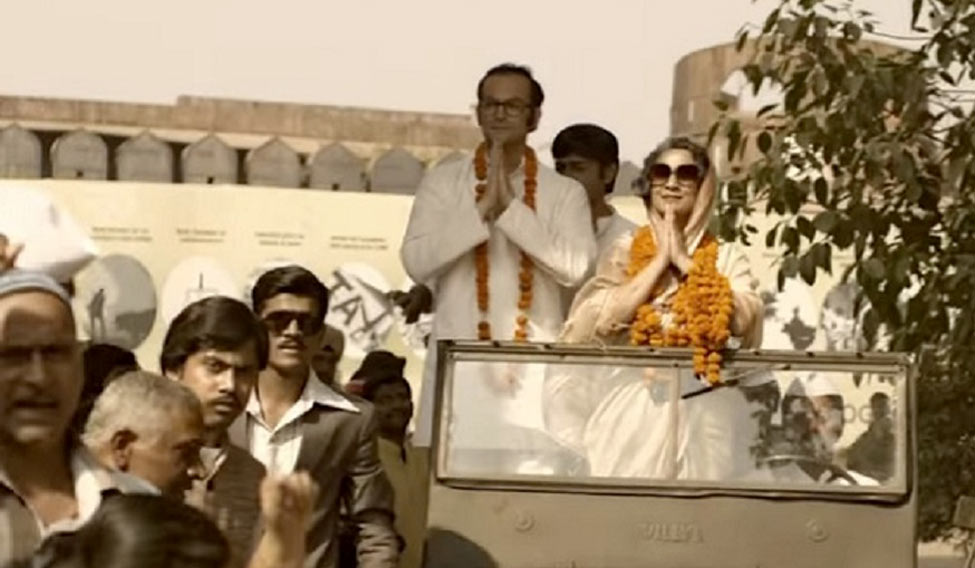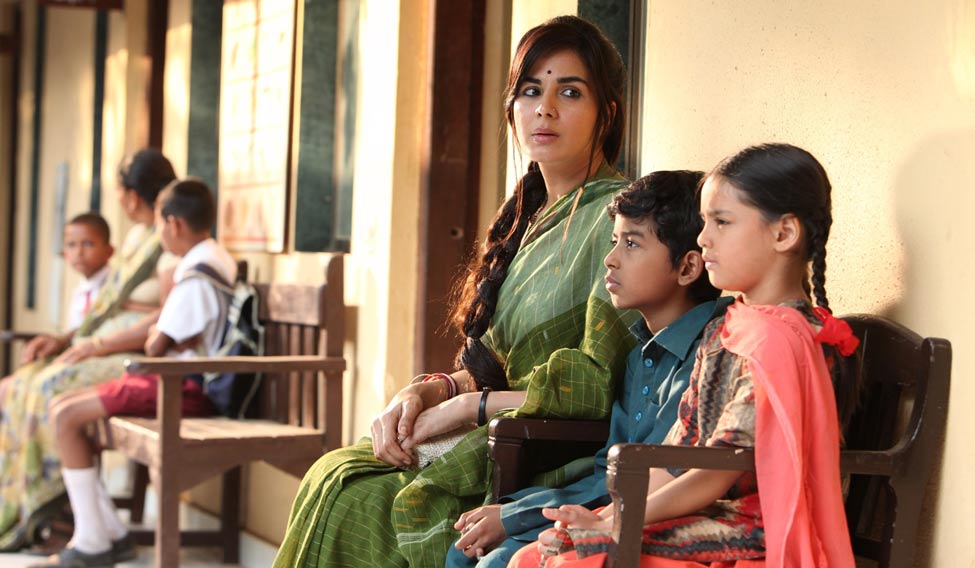At one point in Indu Sarkar, a character in response to a quote by Mahatama Gandhi, says, “Iss desh mein Gandhi ke maayne badal chuke hain (the significance of Gandhi has changed)”. The jibe, obviously at the Indira Gandhi government that imposed a 21-month Emergency during 1975-77, stands as true in the current scenario as it may have in those days. It seems more relevant because the significance of Gandhi—the surname—is almost nothing in the current political scenario. And thus, it makes for an opportune time for director Madhur Bhandarkar to release the film.
The title of any Madhur Bhandarkar film is straight and simple, giving the audience enough clues about the crux of the film. Be it Fashion, Heroine or Corporate, you knew from the title the world that’s going to be captured. Indu Sarkar may seem a little misleading in that sense. If you are going to watch the film thinking that it’s about Indira Gandhi’s (also called Indu fondly) regime then you are mistaken. It’s about an orphan, Indu (Kirti Kulhari), who grows up reading poetry and prose, and gets married to a bureaucrat, Naveen Sarkar (Tota Roy Chowdhary), to become Indu Sarkar.
The attempt to use the title as a metaphor is smart, but the plot of the film is so thin that the smart move hardly makes a difference. The film has been reduced to, like many other Bhandarkar films, a story of woman victim. Here, Indu struggles as an orphan when she is not adopted because of her stammer. Then she has a similar fate while looking for a life-partner, and though she eventually gets married, she is troubled at the hands of a misogynistic husband.

Bhandarkar, in the guise of the domestic life of a pro-government bureaucrat, has tried to bring out the intricacies of the Emergency period. He speaks about everything—from the protests of underground activists, which included involvement of Jaiprakash Narayanan to Nanaji Deshmukh, to the nasbandi campaign carried out by the government officials as well as charting the loyalty of Indira’s youngest son, Sanjay Gandhi (played by Neil Nitin Mukesh), for his ‘mummi’. Even if Mukesh’s resemblance to Sanjay Gandhi is uncanny, the filmmaker makes sure that not once he is addressed as a Gandhi. His associates call him Chief. While his mummi, played by Supriya Vinod, appears in a brief scene, which wouldn’t have made a difference, had it not been there.
Now, for all the hype created around the film that real-life people from the Congress had an issue with its release, it is nothing but disappointing. A lookalike of Jagdish Tytler is present throughout the film without any addition to the plot. In the garb of a period drama about one of the darkest chapters of post-Independence India, the film, with a tacky production and a story that lacks depths, has been reduced to nothing. It is just another addition to the long list of bad films packaged as content-oriented. Somehow, it doesn’t even seem like a propaganda film because its core message is so unclear. It neither seems to sway right, or left.
In a recent interview with us, Bhandarkar said that he wants the film to be made tax-free so that the people know what happened in the infamous 21 months. But going by what he has presented, even a free show wouldn’t find any takers.
Film: Indu Sarkar
Director: Madhur Bhandarkar
Cast: Kirti Kulhari, Neil Nitin Mukesh, Tota Roy Chowdhary
Rating: 1.5/5







